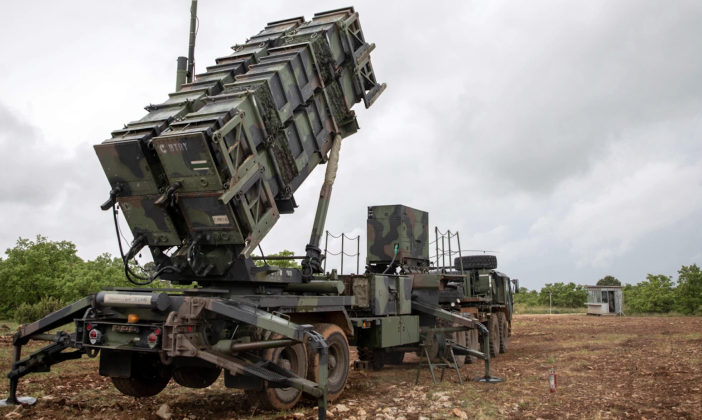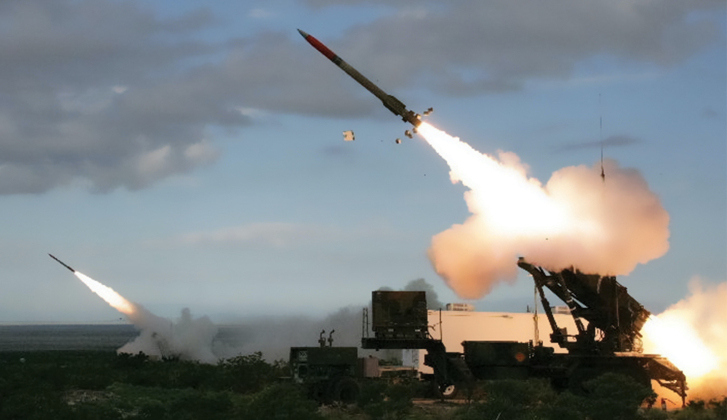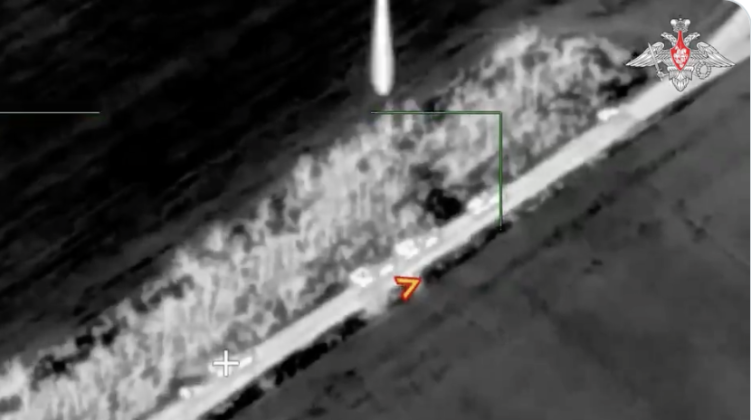News
Germany Delivers New Patriot Long Range Air Defence Systems to Ukraine: Can They Stop Russian Missile Attacks?
Th Ukrainain Armed Forces have received new missile batteries from German Air Force MIM-104 Patriot long range air defence systems, as the service has continued to reduce the numbers in service domestically to prioritise bolstering the Eastern European state’s capabilities. Ukrainian defence officials have reported that the newly delivered batteries are already being integrated into the country’s air defence network, with local crews trained in Germany and Poland beginning deployment within days of arriving. One senior Ukrainian air defence officer said the systems are already active and positioned to defend high-risk targets in the country, including those in the capital Kiev, and strategic logistics corridors. He added that the Patriot is being integrated with shorter ranged systems such as NASAMS and the IRIS-T to provide a multi-layered defence.

At the beginning of August the German government confirmed plans to deliver two additional Patriot systems to Ukraine, with the delivery structured in two phases, under which complete system elements would arrive within two to three months. The German Defence Ministry observed at the time that “this arrangement is the result of close coordination with the United States, our NATO allies, and under the leadership of Supreme Allied Commander Europe Gen. Alexus G. Grynkewich.” German Defence Minister Boris Pistorius stated that plans for expedited deliveries of the systems were motivated by the need to respond to Russia’s intensified strikes on Ukrainian cities. “Germany has always been willing to provide Patriot system components in support of Ukraine… The prerequisite was that the U.S. manufacturer would deliver new Patriot systems to us as quickly as possible so we can continue to meet our NATO obligations. That commitment from the U.S. side has been secured,” he elaborated.

A plan agreed with the United States and Switzerland has seen deliveries of new Patriot systems from the U.S. to Switzerland de-prioritised, allowing Germany to receive new systems previously intended for the Swiss Air Force to replenish the systems it is currently donating to Ukraine. Despite significant efforts to expand production, however, the rate at which Ukrainian-operated systems have been destroyed has far exceeded the Western Bloc states’ collective ability to replenish its supplies. The Patriot system became particularly critical for Ukraine due to the extreme depletion of its network of S-300 and BuK-M2 air defence systems inherited from the Soviet Union, which previously formed the largest and most formidable surface-to-air missile network in Europe. Costing an estimated $2.5 billion each, the Patriot is by far the highest value weapons system deployed by the Ukrainain Armed Forces, with the financing of supplies having been particularly burdensome for German and other Western Bloc states.

The effectiveness of the Patriot system against Russian missile attacks has increasingly been brought to question, with Ukrainian and Western sources having for months warned that its ability to intercept attacks has been limited. Ukrainian Air Force spokesman Igor Ignat having on May 26 highlighted the system’s shortcomings in this regard, observing regarding the Russian Iskander-M ballistic missile system: “The Iskander missiles perform evasive manoeuvres in the final phase, thwarting the Patriot’s trajectory calculations… In addition, the Iskander can drop decoys capable of fooling Patriot missiles.” Chief of communications for Ukrainian Air Force Command Yuri Ignat in early October confirmed that the service was facing growing challenges in intercepting Russian ballistic missile attacks, highlighting the missiles’ ability to follow new flight patterns and more complex attack approaches. “This complicates the work of Patriot, because the system operates in automatic mode when intercepting ballistic missiles. It becomes harder to calculate the point where the interceptor missile will collide with or detonate near the enemy missile,” he observed.












